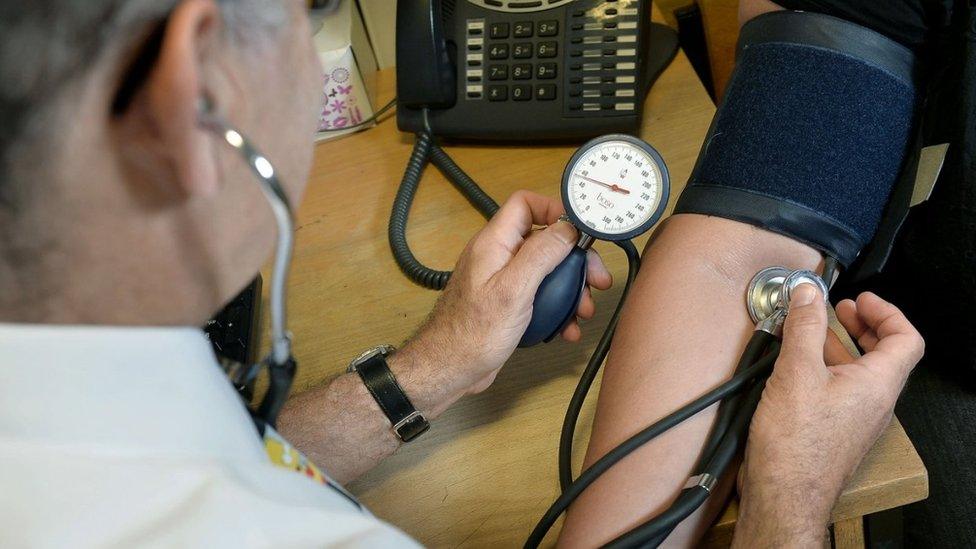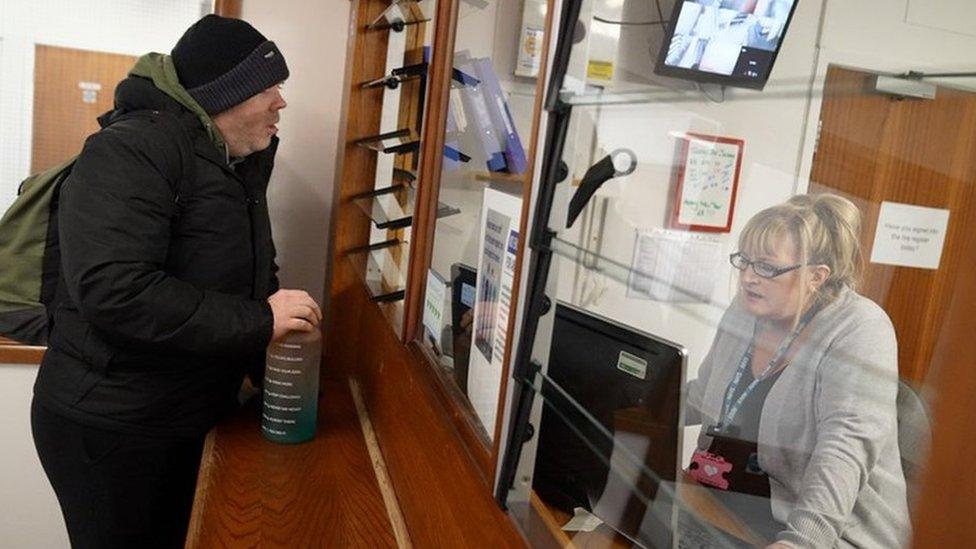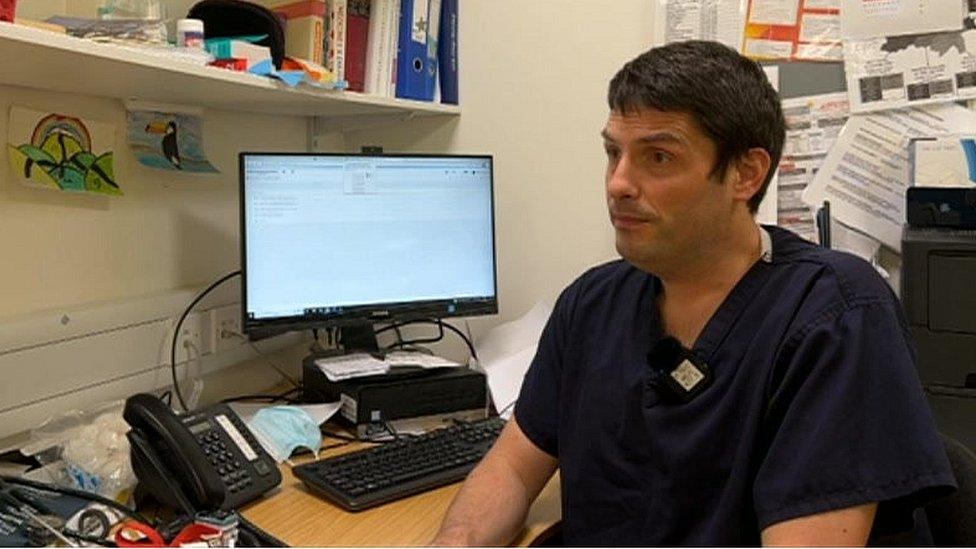Kent GPs facing imminent crisis, says survey
- Published
- comments

Kent LMC said the survey painted a worrying picture of declining GP numbers
General practice in Kent faces an "imminent crisis" with an exodus of staff due to an "unsustainable" workload, a body representing GPs said.
Kent Local Medical Committee (Kent LMC) said it received 229 responses to a survey of staff working in general practice in June and July.
It said 57% of GPs reported considering retirement, reducing hours or leaving the profession in the next five years.
The government said it was investing £240m and delivering extra staff.
NHS England has also been asked for a comment.
Kent LMC said its survey was the first since 2017 and the "planned exodus" was one of the biggest changes, up by more than 10%.
The numbers considering their positions were "staggering", it said, with 30% considering retirement, 19% considering reducing their hours and 8% considering leaving the profession completely.
Work-life balance was named as the most influential factor on whether GPs would stay, it said, with staff working "well beyond their contracted hours" and 82% of GPs feeling "significant" stress.
Kent LMC said the total number of appointments had increased by 35% since 2019 to 975,052 in September 2023.

Analysis
By Mark Norman, BBC South East Health Correspondent
There is a lot to worry about in this survey.
Not least the significant - and rising - demand from us the patients.
There is the fact that Kent and Medway doesn't have enough GPs and that we struggle to attract more to our region and the complicated, and at times baffling way that GPs are funded and how their buildings and IT infrastructure are configured.
The remarkable thing is that somehow the service keeps going.
The warning in this survey though is - for how much longer can it continue?

The GP-to-patient ratio already trails the national average by 18%, it added, with recruitment hampered by "confusion around funding, poor estates and a sparsity of applications".
The current funding system, it said, was perceived to be "out of sync" with present-day demands and inflation, while "inadequate" support from the NHS exacerbated "an already grim picture".
Meanwhile, Primary Care Networks (PCNs), which it said were established to bring about positive change, were instead adding more administrative layers.
Chair of the Kent LMC, Dr Gaurav Gupta, said: "If communities across Kent and Medway want a safe and accessible NHS general practice service then we need the government to increase funding and reduce administrative burdens.
"This will enable general practice to get the desperately required workforce and infrastructure in place and allow us to provide decent healthcare services to our patients."
A Department of Health and Social Care spokesman said: "It is vital that the public can access primary care services when needed and we are making it easier for patients to see and contact their GP, with 29 more appointments in every GP practice, per working day, compared to 2019.
"To help beat the 8am rush, we are investing £240m to support practices to embrace the latest technology, and through measures such as this the government has delivered more than 2,000 additional doctors and 31,000 extra staff than in 2019.
"The NHS has also published the first ever Long-Term Workforce Plan, backed by over £2.4 billion, to train hundreds of thousands more staff over the next 15 years and through our new and expanded pharmacy services we could remove 10 million appointments a year from general practice."

Follow BBC South East on Facebook, external, on Twitter, external, and on Instagram, external. Send your story ideas to southeasttoday@bbc.co.uk, external.
Related topics
- Published6 January 2023

- Published4 January 2023

- Published28 November 2022
